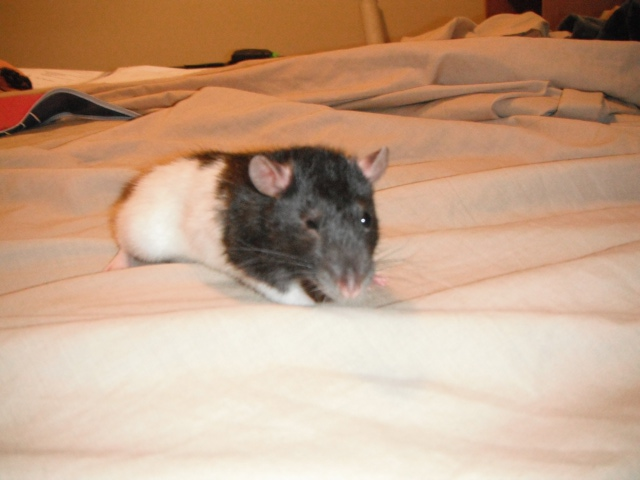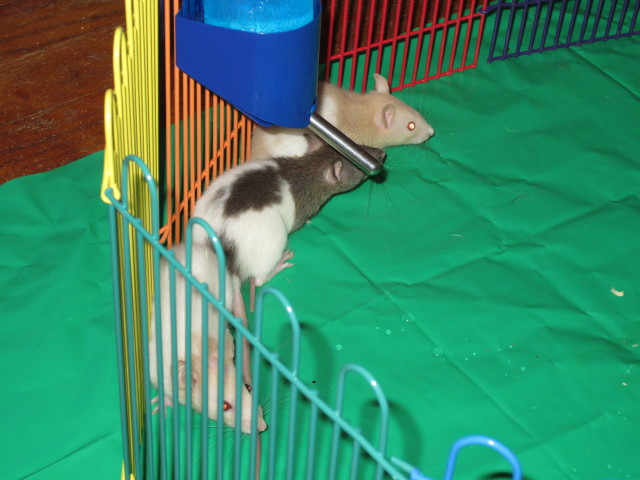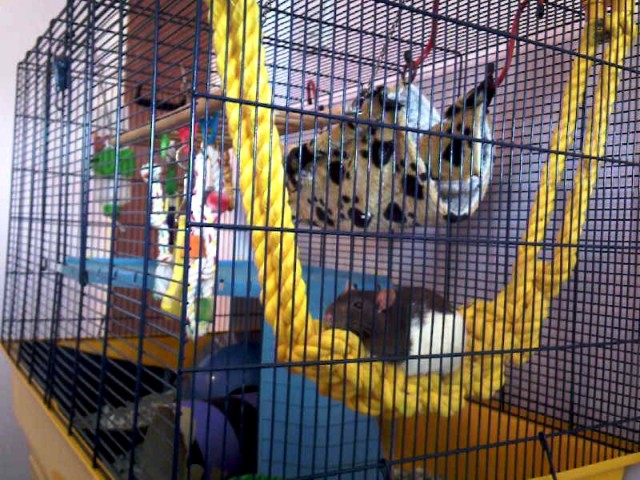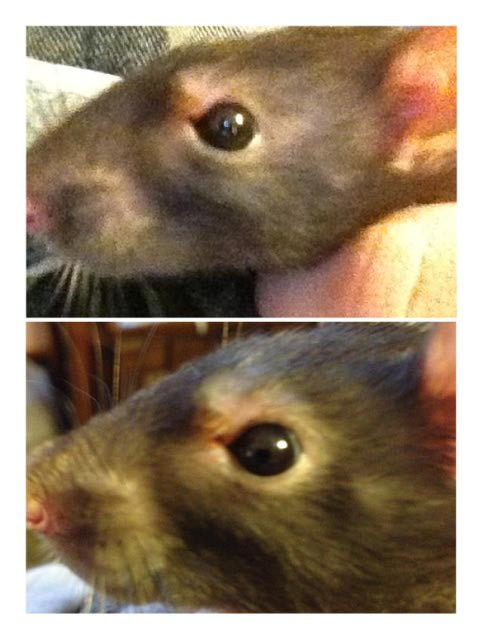QuestionQUESTION: I have a rat that pulled his shoulder, and i think it's dislocated. He doesn't walk on it, but can still move it and sometimes steps on it. It doesn't seem too painfull when i feel it.
When i hold his other paw up in the same position, the hurt one sticks more, which is why i think it's dislocated.
So i've heard that with a dislocated shoulder you can just pull it and it goes back in. And i've read that a broken leg will heal itself (along with meds for pain and inflamation), so is this something that will fix itself? Or is it something that a vet needs to fix?
I figure if a call the vet, they'll tell me to come in either way, for the business. But if it can be done at home, i'd like to know.
But if the vet's all i can do, i definitely will bring him, poor little guy.
Thanks so much.
ANSWER: Hi Joleen
If you think the rat got hurt, how would it have happened? I am not sure what you mean that she steps on her shoulder? Can you elaborate a little more on that?
Also, never try to "set" any bone if you think its dislocated or broken. This can cause serious injury and severe pain and the pain may cause her to either go into shock or else have a heart attack from the pain and stress. This is for the Vet to do only under general anesthesia. In many cases with a fracture the vet may put a pin in the leg or front paw, depending on the severity of it. Keeping the rat isolated in a one story cage with nothing to climb on and keeping him quiet with little room to roam.
As for vets telling you to come in just for the business, this isnt usually why they tell us to come in. Rats are tiny animals and if they need medicated they need weighed first in order not to overdose. A case such as this would always warrant an exam. I would not have much respect for a vet that would treat a rat without ever seeing it first. This could cause more harm than good and tells me the vet probably doesnt care much about the well being of the rat in the first place. Unless you have an established relationship with a vet and he or she knows your rats history and has seen him before etc....they would want to see him for sure. I know some people have been ripped off (trust me, so have I!) and some vets are even so arrogant as to claim they know about exotics but only know a tad bit more than what they are taught in Vet school and really only guess their way through an exam, which is why I strongly prefer rats see certified exotic vets or at least a general DVM that has alot of time under his or her belt as far as going to lectures, seminars and workshops for exotics so they know far more than normal about exotics, including our rats. That said, if you need a vet, please allow me to help you find a good one that will help rather than make you feel like they just want your money. With this economy we need to watch every penny spent! I am all for that!!
Do you notice swelling anywhere or any type of bone protruding?
---------- FOLLOW-UP ----------
QUESTION: Hi Sandra, i got in to see my vet this morning.
The bone looked like it was protruding out of its normal place, like a hard bumpy lump, but that paw is still load-bearing. The vet said it's not dislocated but it's a large blood clot and swelling and will take a long time to get re-absorbed. Other than that, he really doesn't seem in pain. Thank you so much, and sorry to have taken up your time.
I'm pretty sure my vet must be certified for exotics. He's seen exotics, or at least "pocket pet" and rodents for years, and preforms rat spays and neuters. He neuters my rats with the correct method (not through the scrotum) using gas and not an injection for anesthesia. If you have a list of certified vets for Canada, could you check for me Carnegy Animal Hospital (Eric Carnegy) in Halifax, Nova Scotia and let my know? Thank you so much.
Joleen
AnswerHi
The vets at Carnegy are regular DVMs. None of them are certified exotic vets at all. As for using gas instead of injection, no vets use injection anymore because its too hard to control the amounts use and could cause an overdose. Also, neutering through the abdomen is not necassarily the correct method. Scrotal neutering is actually faster and even less invasive but there is more of a chance of an abscess after surgery than during an abdominal neuter. Both ways still cause considerable discomfort and require narcotic pain medication for at least 3 days post op.
How is the rat today? Did they suggest any treatment for the hematoma? Did they tell you to apply a heated compress to help shrink the hematoma?

 Rat with sore eye
Question
Female rat
Today I bought a female rat
Rat with sore eye
Question
Female rat
Today I bought a female rat
 should I but this cage?
QuestionQUESTION: Yesterday I was finally home from sch
should I but this cage?
QuestionQUESTION: Yesterday I was finally home from sch
 Female rat urinary problems - metacam
QuestionWanda
QUESTION: Hi,
I have mailed you b
Female rat urinary problems - metacam
QuestionWanda
QUESTION: Hi,
I have mailed you b
 joint infection
QuestionQUESTION: Hi, I wrote to you a few days ago abo
joint infection
QuestionQUESTION: Hi, I wrote to you a few days ago abo
 Weird bump
Question
Eye bumb
Hello! Recently Ive noticed a
Weird bump
Question
Eye bumb
Hello! Recently Ive noticed a